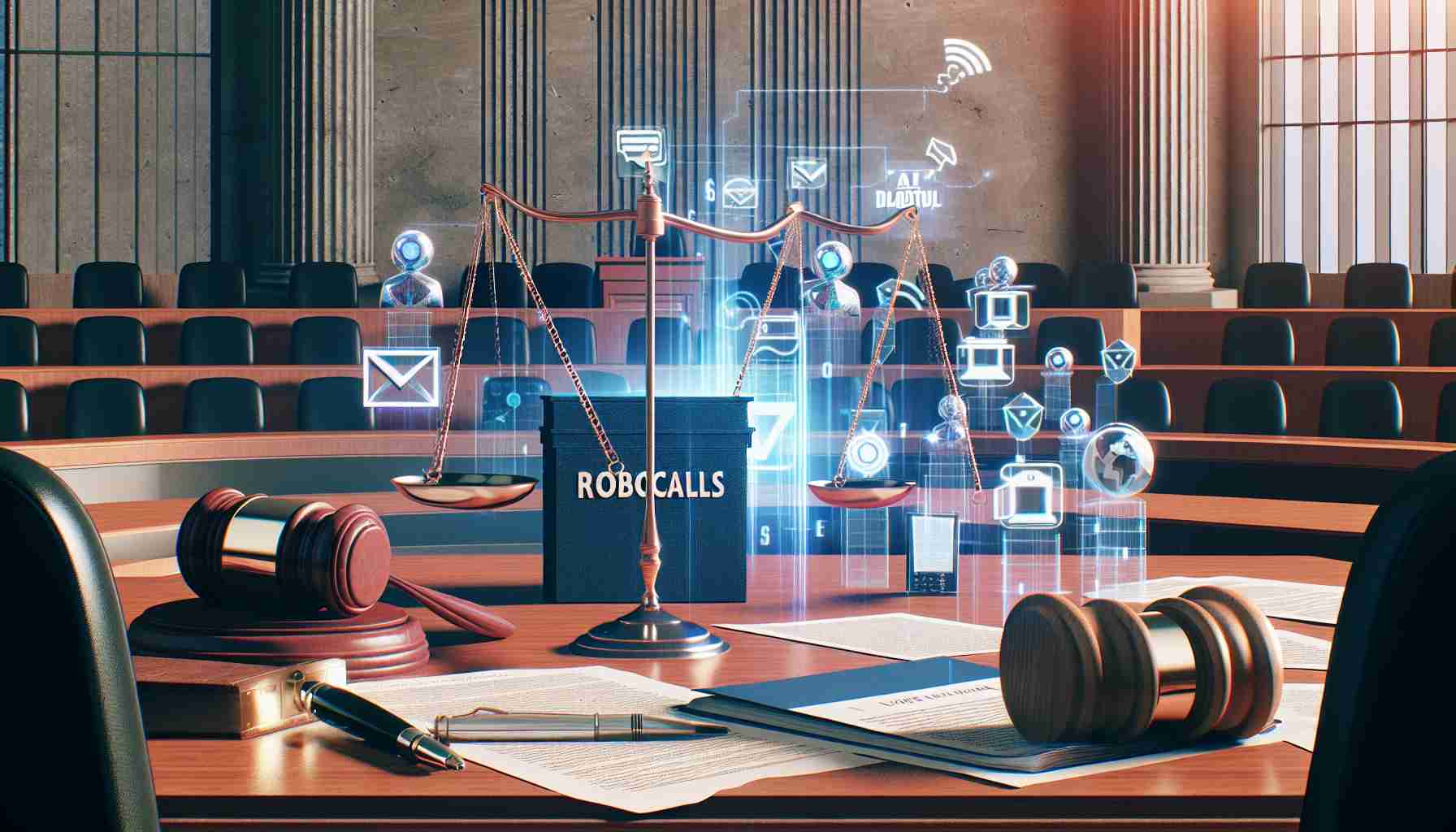A group of New Hampshire voters and the League of Women Voters have filed a federal lawsuit against a political operative and two companies involved in a fake robocall that used AI to impersonate Joe Biden. The lawsuit seeks damages and a permanent ban on similar future actions, highlighting the potential dangers of AI interference in elections.
The political operative, Steve Kramer, had admitted to orchestrating the robocall that spoofed Biden’s voice on the eve of the New Hampshire primary. Although working for Biden’s challenger Dean Phillips, Phillips’s campaign denied any involvement in the call, and Kramer stated that he did it as an act of civil disobedience to draw attention to the risks of AI in elections. This incident may be the first instance of AI interference in a US election.
The plaintiffs, consisting of three New Hampshire voters who received the calls and the League of Women Voters, believe that this lawsuit is the first of its kind seeking redress for the use of AI in robocalls during elections. The New Hampshire attorney general’s office is currently investigating the matter.
Two Texas companies, Life Corporation and Lingo Telecom, aided in facilitating the calls. The lawsuit argues that if the defendants are not permanently prohibited from deploying AI-generated robocalls, there is a high likelihood of future occurrences. The plaintiffs claim that both Kramer and the two companies violated voter intimidation provisions in the Voting Rights Act, as well as the Telephone Consumer Protection Act’s ban on delivering prerecorded calls without consent. Additionally, they argue that the calls violated New Hampshire state laws that mandate disclosure of the source of politically-related calls.
The plaintiffs seek damages of up to $7,500 for each plaintiff affected by calls that violated federal and state law. It is estimated that the recorded call reached a range of 5,000 to 25,000 recipients. The goal of the lawsuit is not only to obtain redress but also to send a message to potential perpetrators of similar campaigns that such actions are illegal. By challenging illegal voter intimidation and deceptive practices, the League of Women Voters and its partners aim to discourage future attempts.
Courtney Hostetler, a lawyer with the civic action group Free Speech for People, emphasized the need to address the threat posed by the defendants. She stated that this lawsuit is intended to serve as a deterrent and demonstrate that illegal actions targeting voters will be challenged. The hope is that potential offenders will think twice before engaging in similar activities.
According to NBC News, Kramer paid a street magician in New Orleans $150 to create the call based on a script he prepared. Kramer expressed satisfaction in “making a difference” through this operation, noting the attention it garnered. However, Mark Herring, a former Virginia attorney general involved in the lawsuit, dismissed such justification as “self-serving.” He emphasized that the intent behind the robocall was to suppress the vote and coerce voters into abstaining out of fear of losing their right to vote.
This legal battle not only highlights the potential risks of AI in elections but also underscores the importance of protecting the integrity of the voting process. Efforts to preserve voter rights and combat deceptive practices are crucial in safeguarding democracy.
FAQ:
Q: What is the significance of the federal lawsuit filed by New Hampshire voters and the League of Women Voters?
A: The lawsuit seeks damages and a permanent ban on AI-generated robocalls, shedding light on the dangers of AI interference in elections.
Q: Which laws did the defendants allegedly violate?
A: The defendants are accused of violating provisions in the Voting Rights Act, the Telephone Consumer Protection Act, and New Hampshire state laws related to disclosure of politically-related calls.
Q: What are the plaintiffs hoping to achieve through this lawsuit?
A: The plaintiffs aim to obtain damages for affected voters and set a precedent that illegal voter intimidation and deceptive practices will face legal consequences.
Q: What was the motivation behind the fake robocall?
A: The political operative claimed that his intention was to draw attention to the risks of AI in elections, despite working for Biden’s challenger in the primary.
Q: How does this lawsuit contribute to the protection of voters’ rights?
A: By challenging AI interference and illegal practices, the lawsuit serves as a deterrent and encourages potential perpetrators to reconsider such actions.
Key Terms/Definitions:
1. Robocall: An automated telephone call delivering a prerecorded message to a large number of people.
2. AI (Artificial Intelligence): The simulation of human intelligence processes by machines, typically computer systems, to perform tasks that would usually require human intelligence.
3. Civil disobedience: The deliberate act of breaking the law or refusing to obey certain laws or commands as a form of protest against perceived injustice.
4. Voter intimidation: Actions or tactics intended to discourage or prevent individuals from exercising their right to vote, such as threats or harassment.
5. Voting Rights Act: A federal law enacted in 1965 that prohibits racial discrimination in voting, including voter intimidation and other practices that may hinder voter participation.
6. Telephone Consumer Protection Act: A federal law that regulates telemarketing calls, automatic telephone dialing systems, and prerecorded calls. It includes provisions to protect consumers from unwanted telemarketing calls.
7. New Hampshire state laws: Laws specific to the state of New Hampshire that regulate various aspects of elections, including the disclosure of the source of politically-related calls.
Suggested Related Links:
– Election Laws and Regulations
– Stop Unwanted Robocalls and Texts
– Voting Rights: ACLU
The source of the article is from the blog windowsvistamagazine.es

